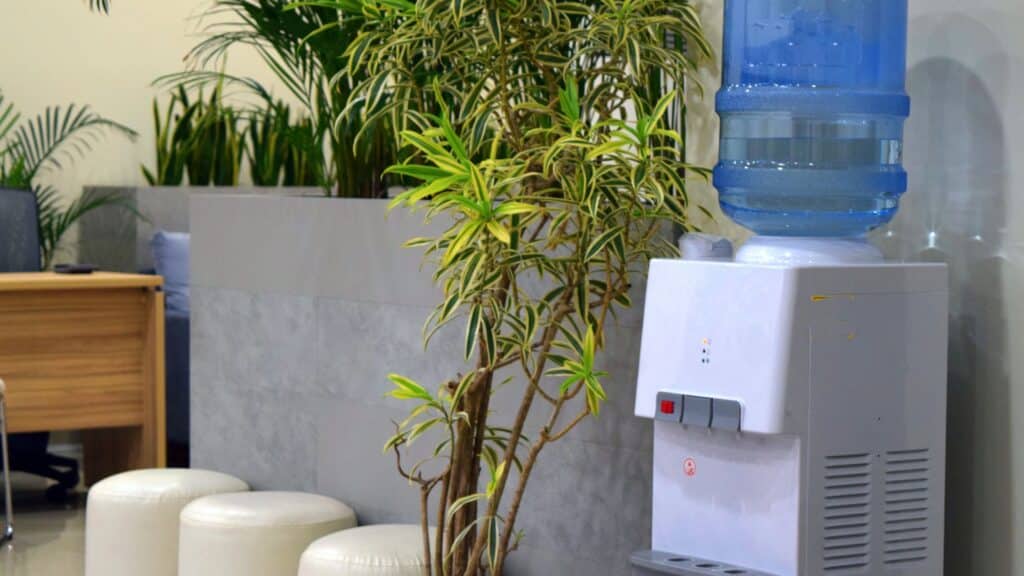Reducing Plastic Waste: The Role of Water Services on Campus

The Growing Problem of Plastic Waste in Universities
Across universities worldwide, plastic waste has reached alarming levels. With thousands of students consuming bottled water daily, campuses are becoming breeding grounds for plastic pollution. Single-use plastic bottles are among the most frequently discarded items in dormitories, cafeterias, libraries, and classrooms. These plastics, often improperly disposed of, contribute to environmental degradation and place a significant burden on waste management systems.
Universities are microcosms of society. When we fail to tackle plastic waste on campus, we miss an opportunity to drive sustainable change on a broader scale. Reducing plastic waste must start where habits are formed and awareness is nurtured—on campus.
How On-Campus Water Services Reduce Plastic Waste
Hydration Stations: A Sustainable Solution
Many forward-thinking institutions are installing hydration stations and water refill points across campus. These filtered water dispensers encourage students to refill reusable bottles, reducing the dependency on single-use plastic bottles. Strategic placement of these stations—in lecture halls, dormitories, libraries, and athletic centers—ensures accessibility and promotes usage.
Modern hydration stations also come equipped with counters that display how many bottles have been saved, offering real-time feedback on collective impact. This encourages continuous use and fosters a sense of environmental responsibility among students.
Bulk Water Delivery Services for Dorms and Common Areas
Another effective strategy to reduce bottled water waste is through bulk water delivery services for university dormitories and student lounges. Providing 5-gallon jugs with hot and cold dispensers encourages students to drink more water while eliminating the constant purchase and disposal of individual plastic bottles.
Incorporating these services into student housing contracts or wellness programs also ensures consistent adoption across the student body.
Reusable Bottle Incentive Programs
Some universities are driving change by distributing branded, high-quality reusable water bottles during orientation weeks. Pairing these giveaways with education on campus water services ensures that students have the tools and motivation to reduce plastic waste from day one.
Additionally, offering discounts at campus cafes or vending machines for students using their own bottles can amplify participation and drive sustainable behavior long-term.
Environmental and Financial Benefits of Campus Water Services
Significant Waste Reduction
The environmental benefit of switching from plastic bottles to water service solutions is massive. A single hydration station can save tens of thousands of bottles per year. Multiply that by the number of stations across campus, and the cumulative impact is staggering.
By reducing landfill waste, universities can help lower greenhouse gas emissions associated with plastic production and degradation, contributing directly to broader climate goals.
Lower Operational Costs
While initial investment in water service infrastructure might seem high, the long-term cost savings are clear. Universities that adopt these solutions report reduced spending on waste disposal, less litter cleanup, and lower energy use in recycling operations.
Institutions that partner with water service providers often benefit from bulk pricing and service maintenance packages, offering a cost-effective and reliable alternative to bottled water consumption.
Educational Opportunities: Turning Campuses into Green Hubs
Universities are not just centers of academic excellence—they are places of influence. By implementing and promoting sustainable water services, campuses become living labs for environmental responsibility.
Sustainability initiatives tied to hydration and plastic waste can be integrated into:
-
- Environmental science courses
-
- Student research projects
-
- Campus sustainability clubs
-
- Community outreach programs
These efforts instill long-term values in students, turning awareness into action that continues beyond graduation.
Challenges and How to Overcome Them
Lack of Awareness
One of the main barriers to adoption is that students often aren’t aware of the available water services. This can be addressed through campus-wide campaigns, email communications, and clear signage.
Initial Resistance to Change
Changing behavior takes time. Introducing incentives, such as loyalty points or giveaways for refilling, can ease the transition and make sustainable habits more appealing.
Infrastructure and Funding Limitations
Budget constraints can delay the rollout of water refill stations. However, universities can seek grants, alumni funding, or partnerships with eco-conscious brands to support these initiatives.
A Call to Action for Universities and Student Services
Now is the time to act. The role of campus water services in reducing plastic waste is no longer optional—it is essential. As stewards of the next generation, universities must take tangible steps toward sustainability.
Together, we can transform university campuses into models of environmental stewardship, setting the standard for communities around the globe.
